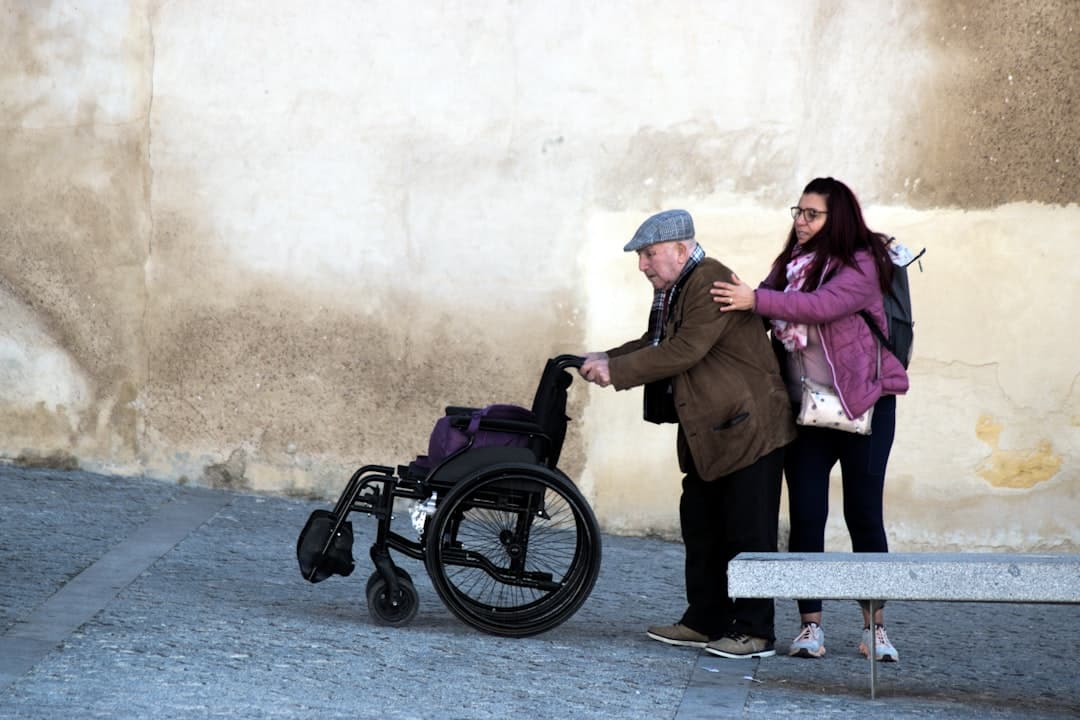Find top Los Angeles memory care facilities. Explore costs, specialized therapies & expert tips to choose the best for your loved one.

Alzheimer’s Care Options Near Me: A Comparison
Alzheimer’s Care Options Near Me: A Comparison

Alzheimer’s Care Options Near Me: A Comprehensive Comparison of Memory Care Facilities and Services
Families navigating Alzheimer’s care often face overwhelming choices among specialized facilities, assisted living communities, nursing homes, and residential care homes. Finding the right “memory care facilities near me” means balancing individualized safety, personalized programs, cost considerations, and emotional support. This guide clarifies each option’s purpose, key features, and benefits; outlines essential selection factors; compares costs and funding sources; identifies early care indicators; illustrates life at Memory Lane Home in Ypsilanti and Ann Arbor; and offers a side-by-side facility comparison. By understanding these care choices, families gain confidence in making informed, compassionate decisions for loved ones with dementia.
What Are the Different Types of Alzheimer’s and Dementia Care Facilities Near Me?
Alzheimer’s and dementia care facilities serve distinct needs by offering secure environments, specialized staff training, and tailored activities that promote independence and safety. Choosing the right setting depends on cognitive stage, daily support requirements, and desired community size. For example, someone in early-stage dementia might thrive in a residential care home that balances privacy with supervised engagement, while advanced Alzheimer’s often benefits from dedicated memory care units with enhanced security and therapeutic programming.
What Is Dedicated Memory Care and How Does It Support Alzheimer’s Patients?

Dedicated memory care provides a locked, secure neighborhood designed exclusively for residents with cognitive impairments. By employing staff trained in dementia-specific communication, this model enhances safety through monitored access points and personalized routines. Key features include:
- Specialized therapy programs that stimulate recall and social engagement
- Personalized memory wall displays to reinforce orientation
- 24-hour supervision to prevent wandering
Residents benefit from consistent schedules and small-group activities, reducing confusion and agitation while fostering meaningful connections.
The Effectiveness of Memory Care Units for People with Dementia
Memory care units are designed to provide a safe and supportive environment for individuals with dementia, often leading to improved quality of life and reduced behavioral issues. Research indicates that these specialized units can significantly decrease the frequency of falls and instances of wandering, while also enhancing cognitive function through structured activities and therapies.
Alzheimer’s Association, Alzheimer’s & Dementia (2022)
This research supports the article’s claims about the benefits of dedicated memory care units, including enhanced safety and therapeutic programming.
How Does Assisted Living with Memory Care Differ from Other Senior Living Options?

Assisted living with memory care integrates general daily support—such as medication management, meal assistance, and housekeeping—with cognitive-focused services. Unlike standard assisted living, this combination adds:
- Designated memory care neighborhoods or wings
- Caregivers skilled in dementia interventions
- Structured therapeutic activities tailored to cognitive levels
This hybrid approach supports residents who need both personal care and specialized memory support without moving to a fully locked facility.
What Are the Key Differences Between Nursing Homes and Memory Care Facilities?
Nursing homes emphasize medical and rehabilitative services under licensed nursing supervision, making them ideal for residents requiring frequent clinical interventions. Memory care facilities prioritize cognitive-based programming and safety over intensive medical treatments.
Families often select memory care when behavioral management and routine consistency outweigh the need for constant medical oversight.
What Are Residential Care Homes and Their Benefits for Dementia Care?
Residential care homes—often called adult foster care—offer a home-like setting with a small resident group and a high caregiver-to-resident ratio. These homes provide:
- Family-style meals and communal activities
- Individualized care plans in a familiar environment
- Flexible daily routines that adapt to resident needs
By feeling more like home, residents experience less stress and stronger one-on-one relationships, enhancing emotional well-being and cognitive engagement.
How to Choose the Best Memory Care Facility Near Me: Essential Factors and Checklist
Selecting an appropriate memory care facility involves evaluating care quality, environment safety, staffing, programming, and family communication. A thorough evaluation ensures alignment with each resident’s physical, emotional, and cognitive needs.
What Questions Should Families Ask When Evaluating Memory Care Facilities?
Families should inquire about staffing ratios, caregiver training, daily programming, safety protocols, and family involvement opportunities. Specific examples include:
- “How many residents does each caregiver supervise during peak activity times?”
- “What dementia-focused therapy or social engagement programs do you offer?”
- “How do you handle care transitions if cognitive or medical needs change?”
These questions reveal operational standards and commitment to individualized attention.
How Does a High Caregiver-to-Resident Ratio Impact Alzheimer’s Care Quality?
A high caregiver-to-resident ratio ensures each individual receives prompt assistance and personalized care. With fewer residents per staff member, caregivers can:
- Build trusting relationships that reduce anxiety
- Monitor behavioral changes closely to adjust care plans
- Provide one-on-one activities that reinforce memory and independence
Enhanced supervision reduces risks of falls or wandering and fosters deeper emotional support.
What Personalized Care Plans Are Offered for Alzheimer’s and Dementia Residents?
Personalized care plans align daily routines, therapy choices, and social activities with each resident’s history, preferences, and cognitive level. Common plan components include:
- Memory enhancement exercises based on life stories
- Nutritional adjustments for appetite changes
- Mobility or physical therapy schedules
Tailoring these elements empowers residents to maintain familiar habits, reducing agitation and disorientation.
How Can Transitioning to Memory Care Be Made Easier for Loved Ones?
Smooth transitions rely on gradual orientation, family involvement, and environmental familiarity. Strategies include:
- Visiting the facility before move-in to meet staff and tour rooms
- Bringing cherished personal items to create a comforting atmosphere
- Establishing consistent drop-in routines to maintain family bonds
These steps reduce stress and foster a welcoming sense of community.
What Is the Cost of Memory Care Near Me and What Financial Assistance Is Available?
Memory care costs reflect specialized staffing, secure facilities, and therapeutic programming. Understanding pricing and funding options helps families plan responsibly and access support.
Financial Planning for Long-Term Care
Planning for the financial aspects of long-term care, including memory care, is crucial for families. This includes understanding the costs associated with different care settings, exploring available funding options such as Medicaid and Veterans Aid and Attendance benefits, and considering long-term care insurance.
National Council on Aging, Journal of Gerontology (2023)
This citation provides support for the article’s discussion on the costs of memory care and the financial assistance options available to families.
How Much Does Memory Care Typically Cost in Ypsilanti and Ann Arbor?
Local memory care rates average between $6,000 and $8,500 per month, depending on facility size, included services, and room accommodations. Smaller residential homes often offer lower baseline fees but may charge additional service upgrades.
Does Medicaid or Medicare Cover Memory Care Expenses?
Medicare generally does not cover long-term custodial care, while Medicaid may cover memory support in certain residential settings based on eligibility and state plan specifics. Qualification requires demonstrating financial need and meeting health criteria for nursing-level care.
What Financial Support Options Exist for Veterans and Long-Term Care Insurance Holders?
Veterans Aid and Attendance benefits can subsidize memory care for eligible veterans and spouses, offering monthly allowances for assisted living expenses. Long-term care insurance policies often include memory care riders that reimburse portions of monthly fees after a waiting period.
How Can Families Plan for the Cost of Alzheimer’s Care?
Effective budgeting includes comparing fee structures, exploring subsidy programs, and consulting elder law advisors about asset planning. Families may set aside emergency funds for care transitions and reassess plans every six months to account for changing cognitive or medical needs.
What Are the Signs That Indicate a Loved One Needs Memory Care?
Recognizing early signs and assessing support requirements ensures timely intervention and better outcomes.
What Are the Early Symptoms of Alzheimer’s and Dementia to Watch For?
Initial indicators include short-term memory lapses, difficulty completing familiar tasks, and increased confusion about time or place. Subtle changes in mood, social withdrawal, or misplacing personal items daily also suggest emerging cognitive decline.
When Is It Time to Consider Moving to a Memory Care Facility?
Transition consideration arises when a loved one experiences frequent safety risks (wandering, falls), significant disorientation, or caregiver exhaustion that compromises quality of life. Professional assessment and honest family discussions guide this decision.
How Do Caregivers Assess the Level of Care Needed?
Care assessments combine medical evaluations, cognitive screening tools, and home safety reviews. Licensed nurses and dementia specialists collaborate with families to rate assistance levels, recommending memory care when in-home support is insufficient to ensure safety and engagement.
What Is Life Like at Memory Lane Home: Personalized Memory Care in Ypsilanti and Ann Arbor?
Memory Lane Home provides an intimate, home-like environment where personalized care plans and a high caregiver-to-resident ratio foster security and connection. Residents enjoy familiar décor, memory-focused programming, and consistent staffing, all designed to nurture cognitive function and emotional well-being.
How Does Memory Lane Home Provide a Home-Like Environment for Residents?
Private or shared rooms include personal furnishings and memory aids such as labeled cabinets and family photo displays. Common areas mimic cozy living rooms, encouraging socialization over homestyle meals. This setting reduces institutional stress and promotes comfort.
What Activities and Engagement Programs Support Dementia Residents?
A varied weekly calendar blends art therapy, music reminiscence sessions, gentle exercise classes, and sensory gardens. These programs stimulate memory retrieval, motor skills, and emotional expression, helping residents maintain meaningful routines and personal interests.
How Does Memory Lane Home’s High Caregiver-to-Resident Ratio Benefit Families?
With one caregiver for every four residents during peak hours, staff provide immediate assistance, adapt care plans swiftly, and maintain open communication with families. This ratio ensures each individual’s needs are met promptly and respectfully.
What Do Families Say About Their Experience at Memory Lane Home?
Families often highlight the compassionate team, clear updates on daily progress, and personalized approach that honors each resident’s history. Consistent praise for reduced anxiety and improved engagement underscores the facility’s commitment to dignified memory care.
How Do Memory Care Facilities Compare: Features, Services, and Benefits Side-by-Side?
Comparing core attributes across facility types clarifies which environment best matches a loved one’s needs. This table outlines key distinctions in care focus, setting, and programmatic offerings.
This comparison highlights how security, staffing, and specialized programming vary, guiding families toward the option that best aligns with clinical needs and personal preferences.
Frequently Asked Questions
What Should Families Consider When Touring Memory Care Facilities?
When touring memory care facilities, families should observe the environment, staff interactions, and resident engagement. Key considerations include the cleanliness and safety of the facility, the warmth and attentiveness of caregivers, and the types of activities offered. Families should also assess how well the facility accommodates individual needs, such as dietary restrictions and mobility assistance. Asking about the facility’s emergency protocols and how they handle behavioral issues can provide insight into their operational standards and commitment to resident care.
How Can Families Stay Involved in Their Loved One’s Care?
Staying involved in a loved one’s care is crucial for emotional support and continuity. Families can participate by attending care plan meetings, engaging in regular communication with staff, and visiting frequently. Many facilities encourage family involvement in activities or events, which can strengthen bonds and provide comfort to residents. Additionally, families can advocate for their loved one’s preferences and needs, ensuring that care remains personalized and aligned with their loved one’s history and interests.
What Are the Benefits of Early Intervention in Alzheimer’s Care?
Early intervention in Alzheimer’s care can significantly improve outcomes for both patients and families. Recognizing symptoms early allows for timely access to specialized care, which can slow cognitive decline and enhance quality of life. Early intervention also provides families with resources and support, helping them navigate the complexities of dementia care. Engaging in memory-enhancing activities and therapies at the onset can foster a sense of normalcy and maintain independence for as long as possible, ultimately benefiting emotional well-being.
What Role Do Support Groups Play for Families of Alzheimer’s Patients?
Support groups offer invaluable resources for families of Alzheimer’s patients, providing emotional support, shared experiences, and practical advice. These groups create a safe space for caregivers to express their feelings, learn coping strategies, and connect with others facing similar challenges. Participating in support groups can reduce feelings of isolation and stress, empowering families to manage their loved one’s care more effectively. Many groups also provide educational resources about Alzheimer’s disease, helping families stay informed about the latest research and care techniques.
How Can Technology Assist in Alzheimer’s Care?
Technology can play a significant role in enhancing Alzheimer’s care by improving communication, safety, and engagement. Tools such as medication management apps, GPS tracking devices, and emergency response systems can help caregivers monitor their loved ones’ well-being. Additionally, virtual reality and cognitive training programs can stimulate memory and cognitive function. Technology can also facilitate family connections through video calls, allowing loved ones to maintain relationships even from a distance, which is crucial for emotional support.
What Are the Common Misconceptions About Memory Care Facilities?
Common misconceptions about memory care facilities include the belief that they are solely for end-of-life care or that they lack a homelike environment. In reality, many memory care facilities focus on enhancing quality of life through engaging activities and personalized care plans. They often provide a warm, supportive atmosphere that encourages social interaction and cognitive stimulation. Additionally, families may think that memory care is too expensive, but various funding options and financial assistance programs can make it more accessible than they realize.
Conclusion
Understanding the various Alzheimer’s care options empowers families to make informed decisions that prioritize safety, emotional support, and personalized care. By exploring dedicated memory care units, assisted living with memory support, and residential care homes, families can find the best fit for their loved ones’ unique needs. Each option offers distinct benefits that enhance quality of life and foster meaningful connections. Take the next step in your journey by visiting our resource center for more information on memory care facilities near you.


